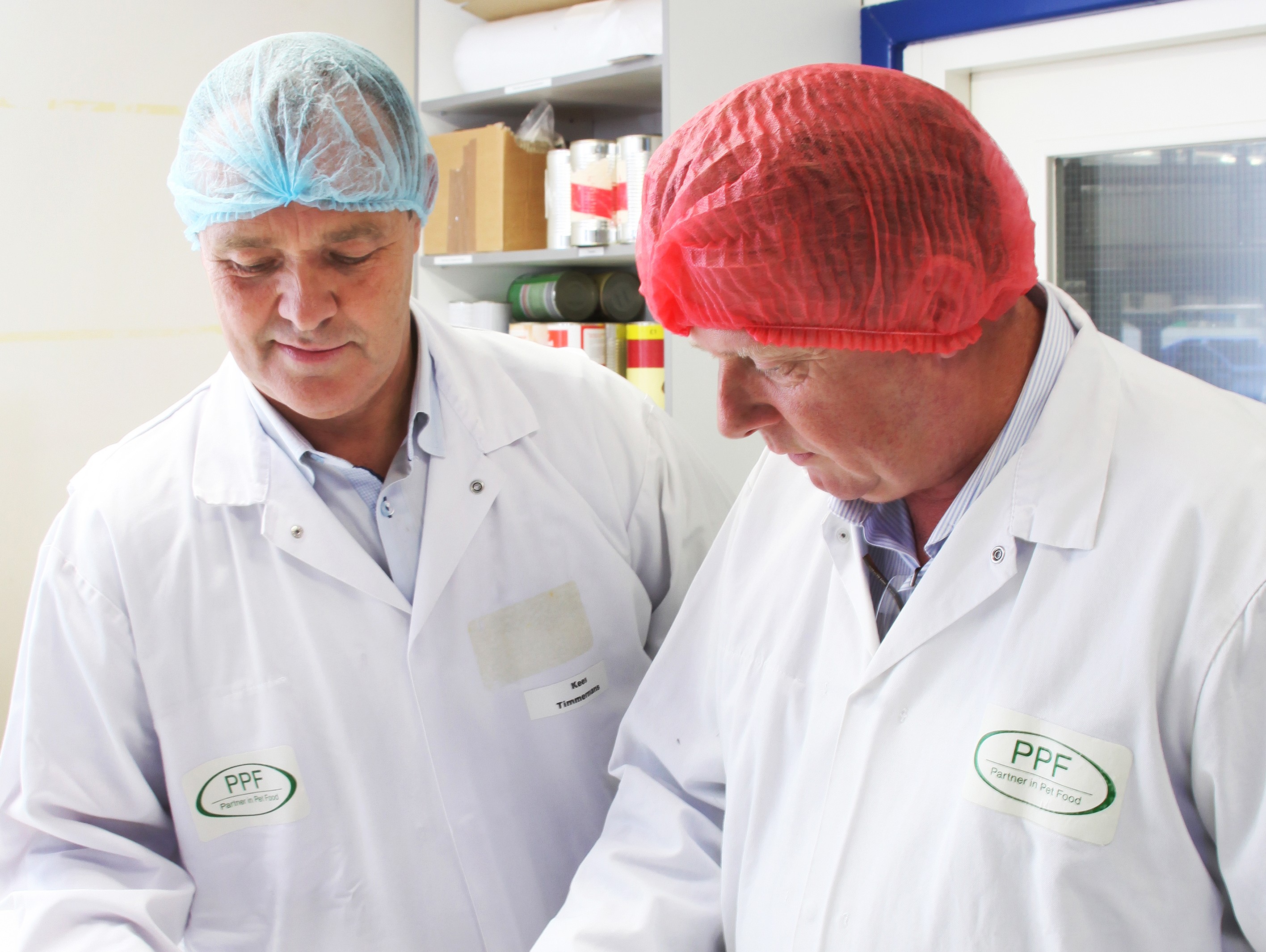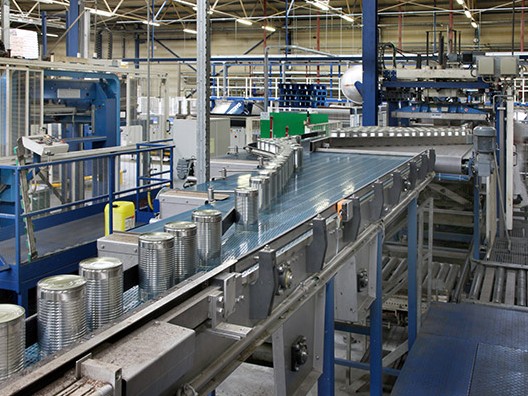
Many dog and cat owners would rather they themselves get food poisoning than their pet. After all, animals can’t tell you what’s wrong with them. That’s why pet food is subject to thorough checks, from the raw materials to the products on store shelves. Food and feed laboratory NutriControl supports companies throughout the entire chain.
Partner in Petfood in Ittervoort manufactures canned pet food for dogs and cats, mainly for private labels in The Netherlands, Germany, Scandinavia, Belgium, France and the UK. The tins contain paté or chunks in either jelly or sauce. 200,000 tins roll off the production line each day, amounting to approx. 9 million per month or 65 tons of canned pet food annually. With such volumes involved, it makes sense to keep a finger on the pulse every second of the process.
QA Manager at Partner in Petfood, Kees Timmermans: “We work with 30 different raw materials which are subsequently used to make 100 different pet food formulations. Each formulation is customised for the client by our nutritionist and meets specific requirements in terms of flavour or composition, such as dietary food for sick, young, senior or overweight animals. People attach a high emotional value to their pets in our society, which is why – in addition to the usual certifications which we also hold such as BRC, IFS, MSC and Skal – the European Pet Food Industry Federation (FEDIAF) has also drawn up an extra European guideline. The federation represents manufacturers in 26 European countries who are keen to ensure that animals receive high-quality and nutritious pet food. The criteria in the guideline are stricter than those of the Dutch government.”
To ensure that each product is completely safe and complies with all the demands, Partner in Petfood works with the company NutriControl. Wim Peter van Panhuis, Sales Manager at NutriControl: “The meat sector has been under close scrutiny for some time now and customers want to be sure that there are no problems with the product. The risk factor in the food industry is very high which is why it’s better to minimise the likelihood of product deviations. Checks are always necessary; after all, people can make mistakes and this is food we’re talking about.” NutriControl has therefore drawn up a detailed plan of checks for Partner in Petfood which Kees and Wim Peter regularly evaluate together.
All raw materials received are checked against the relevant specifications, and all premixes containing vitamins and minerals that are to be added to the meat are also subject to random analysis. Kees: “During the production process, we take samples from each batch which we test ourselves using near-infrared technology (NIR). This enables us to check the nutritional value. We send reference samples from the same batch to the laboratory in Veghel. Two weeks later we receive the results, which tell us the precise levels of moisture, fats, protein and crude fibre. All being well, the laboratory findings match the results of our own analysis.” Partner in Petfood’s factory is extensively automated. Kees: “We have just five operators working on one line. Checks are performed at various points in the process, such as the temperature of the pet food in the tin after it has been in the autoclave.” All the testing and control equipment at Partners in Petfood is set up and checked by NutriControl.
NutriControl conducts around 600,000 analyses per year, primarily on pet food and dairy products. Wim Peter: “We do most of the analysis in-house, which enables us to work fast and to have one-to-one contact with our customers.” The lab is independent and guarantees all its customers complete confidentiality. “We also work for retailers, for example, who ask us to analyse the products on their behalf. Each client is concerned with ensuring that the product is of demonstrably good quality and that the composition is as consistent as possible. Cats are very sensitive to any changes, for instance.” In addition to food tests, the company also conducts analysis of drinking water, the degree of mixing (homogeneity) and cross-contamination in the equipment. Manufacturers can then take account of such data in their processes. NutriControl is continually evolving. Wim Peter: “We have our own NIR department, and we’re working on a system of remote data exchange which will enable us to calibrate the equipment remotely.”

'Analysis guarantees the right label on the right contents'
Kees Timmermans: “The advantage of this collaboration is that they have all the necessary expertise in-house in terms of both the processes and the analysis. Furthermore, they are always fully up to date on the very latest legislative requirements. As a result, Wim Peter can provide us with tailor-made advice about which analyses are necessary and when is the best moment to perform them – while not forgetting our need for efficiency, of course. If we would have to do all that ourselves, we wouldn’t have any time left for manufacturing.”
Source: © Nutricontrol